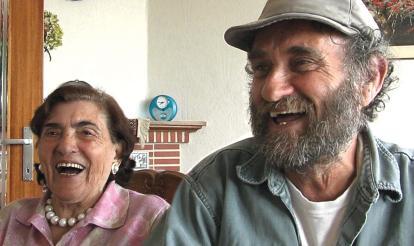Nobody Lives Here is the gripping memoir of Lex Lesgever about his Jewish childhood in the Nazi-occupied Netherlands.
Born and raised in the Jewish quarter of Amsterdam, Lex had just turned 11 when the Germans invaded in May 1940. When his eldest brother Wolf is arrested during a Nazi raid in February 1941, Lex is confronted with the horrific consequences of the German occupations. It marks the beginning of a devastating time in the Netherlands and for the small Jewish boy who had to survive it alone.
It was not long after his brother’s disappearance that the rest of the family was taken and deported with only Lex managing to escape from the Nazi clutches. From that point, the young boy spent months on his own in Amsterdam, sleeping rough in shelters and doorways, escaping Nazi raids, begin fired upon and interrogated, before being taken in by members of the Dutch resistance.
Lex is brought to a small agricultural community where he spends the rest of the war working and living on a farm. The manner in which the whole village knows and accepts the many Jews hiding amongst them provides a thought provoking contrast to Lex’s experiences in Amsterdam. It highlights the grim picture of the German occupation of the Netherlands and the Dutch reaction to it.
When the war ends, Lex has to cope with the terrible fact that not one member if his immediate or wider family has survived. He returns to the chaos of post war Amsterdam and rebuilds his life. Lex devoted his life to the Jewish community and bearing witness, talking about his life in schools. He died on New years Eve 2019, aged 90.
Babette Lichtenstein, one of the translators of the memoir, will discuss Lex and Jewish life in Amsterdam where Babette grew up in after the war. The city carried the weight of its harrowing history, often forgotten after the war. Translating Lex's memoir allowed Babette to understand her own youth's burden better, bridging the gap between her experiences and those depicted in the memoir. It was a personal and historical journey for her, confronting the past and ensuring it wasn't forgotten.

